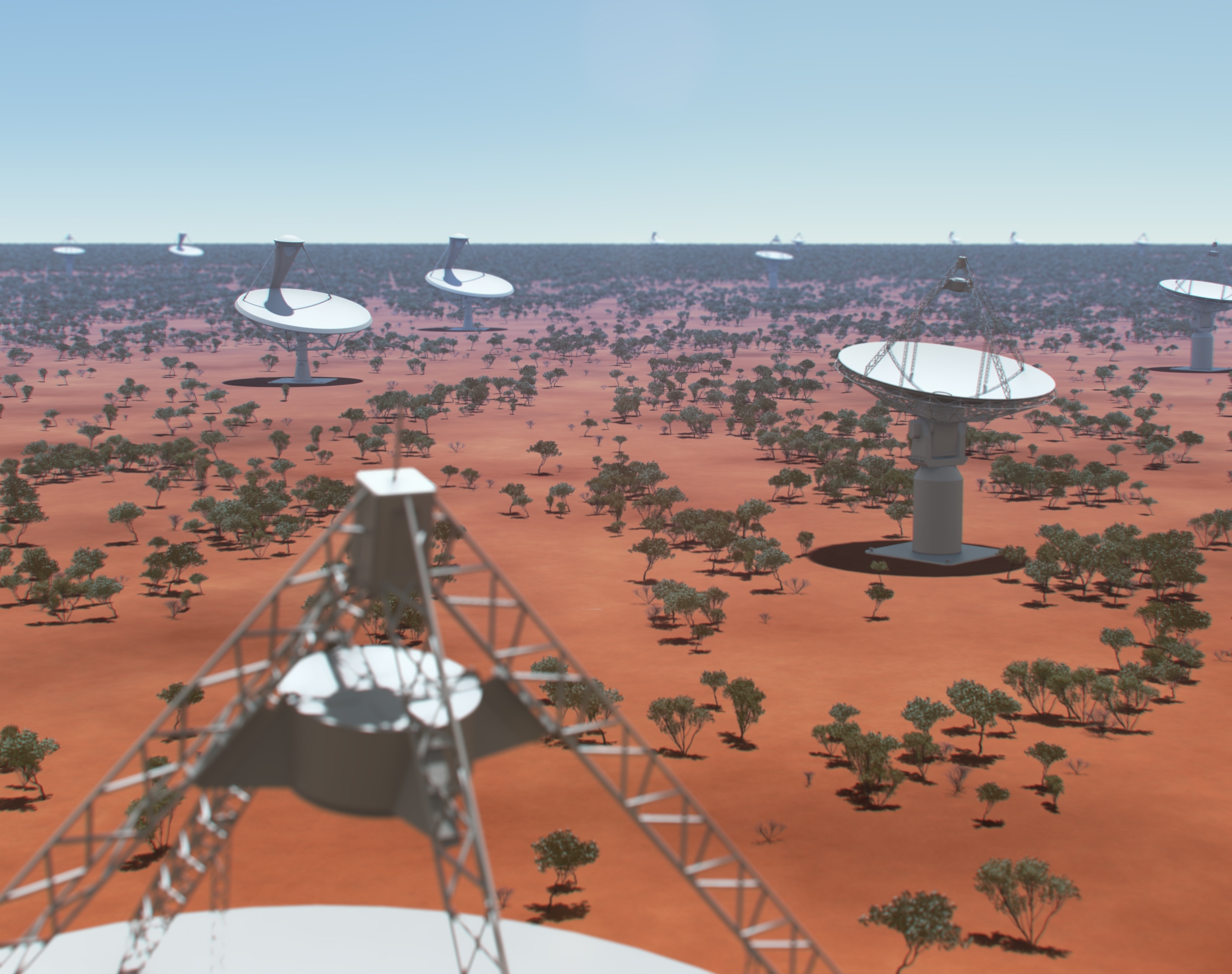We’ve talked about the Square Kilometre Array (SKA) before.
It’ll be the world’s largest radio telescope, will be located in Australia and in Africa and will operate thousands of times faster than the best present day instruments.
Giant gas clouds, black holes, magnetic fields, as well as distant galaxies are just some of the areas that will be studied by the SKA, but first it has to be built. And that will involve a significant amount of R&D before the first bit of building can progress.
Fusion TIFF File
Artist’s impression of dishes that will make up the SKA radio telescope at the Australian core site. (Image: Swinburne Astronomy Productions/ Australian SKA Office)
That’s where we are now with this project – the R&D phase – with a number of international consortia pulled together to undertake the extensive design work required, to make the SKA a reality.
Here at CSIRO, we’re proud to be playing a leading role in this activity, heading up the largest of these consortia, the SKA Dish Array Consortium, which will be responsible for the design work relating to the SKA’s 2500 antenna dishes and receivers, and the development of innovative receivers known as phased array feeds (or PAFs).
We’ll also be involved in several other SKA R&D consortia as well, including those relating to site infrastructure, pre-cursor telescope integration, telescope control system design, and telescope signal processing and data transport functions too.
You can read all about it from the SKA Organisation itself but in the meantime take a look at the SKA overview video from the Australian Government (transcript available here).
As you can see, the potential of the SKA is truly astounding. Researchers believe it will truly revolutionize our understanding of the Universe, helping us better understand fundamental questions in physics, astrophysics, cosmology and astrobiology over coming decades of scientific study.
Exciting times!



Pingback: CSIRO Snapshot: November 2013 - Australian Science